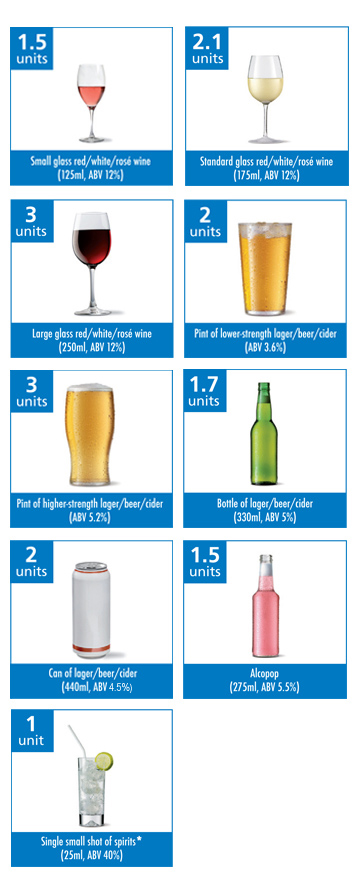Splitting headaches, sickness, dizziness, dehydration: anyone who's ever drunk too much knows the consequences.
Alcohol makes you pee more, which can lead to dehydration. Dehydration is what causes many of the symptoms of a hangover.
Hangover cures are generally a myth. There are no cures for a hangover, but there are things you can do to avoid one and, if you do have one, ease any discomfort.
Tips to avoid a hangover
To avoid a hangover:
- Don't drink more than you know your body can cope with. If you're not sure how much that is, be careful.
- Don't drink on an empty stomach. Before you go out, have a meal that includes carbohydrates (such as pasta or rice) or fats. The food will help slow down the body's absorption of alcohol.
- Don't drink dark-coloured drinks if you've found you're sensitive to them. They contain natural chemicals called congeners, which irritate blood vessels and tissue in the brain and can make a hangover worse.
- Drink water or non-fizzy soft drinks in between each alcoholic drink. Carbonated (fizzy) drinks speed up the absorption of alcohol into your system.
- Drink a pint or so of water before you go to sleep. Keep a glass of water by the bed to sip if you wake up during the night.
Hangover treatment
If you wake up the next morning feeling terrible, you probably didn't follow our advice.
Dealing with a hangover involves rehydrating the body to help it deal with the painful symptoms. The best time to rehydrate is before going to sleep after a drinking session.
Painkillers can help with headaches and muscle cramps.
Sugary foods may help you feel less trembly. In some cases, an antacid may be needed to settle your stomach first.
Bouillon soup, a thin vegetable-based broth, is a good source of vitamins and minerals, which can top up depleted resources. Its main advantage is it's easy for a fragile stomach to digest.
You can replace lost fluids by drinking bland liquids that are easy on the digestive system, such as water, soda water and isotonic drinks.
Things to avoid
"Hair of the dog" – drinking more alcohol – does not help. Drinking in the morning is a risky habit, and you may simply be delaying the appearance of symptoms until the alcohol wears off again.
If you've had a heavy drinking episode, hangover or not, doctors advise that you wait at least 48 hours before drinking any more alcohol to give your body time to recover.
Sometimes, of course, a hangover makes that advice easier to follow.
Low-risk drinking advice
To keep health risks from alcohol to a low level if you drink most weeks:
- men and women are advised not to drink more than 14 units a week on a regular basis
- spread your drinking over three or more days if you regularly drink as much as 14 units a week
- if you want to cut down, try to have several drink-free days each week
Fourteen units is equivalent to 6 pints of average-strength beer or 10 small glasses of low-strength wine.
Know your units
You can keep track of how many units you're drinking using the One You Drinks Tracker app available from iTunes and Google Play.
See the guide below to find out how many units are in your favourite tipple. 
